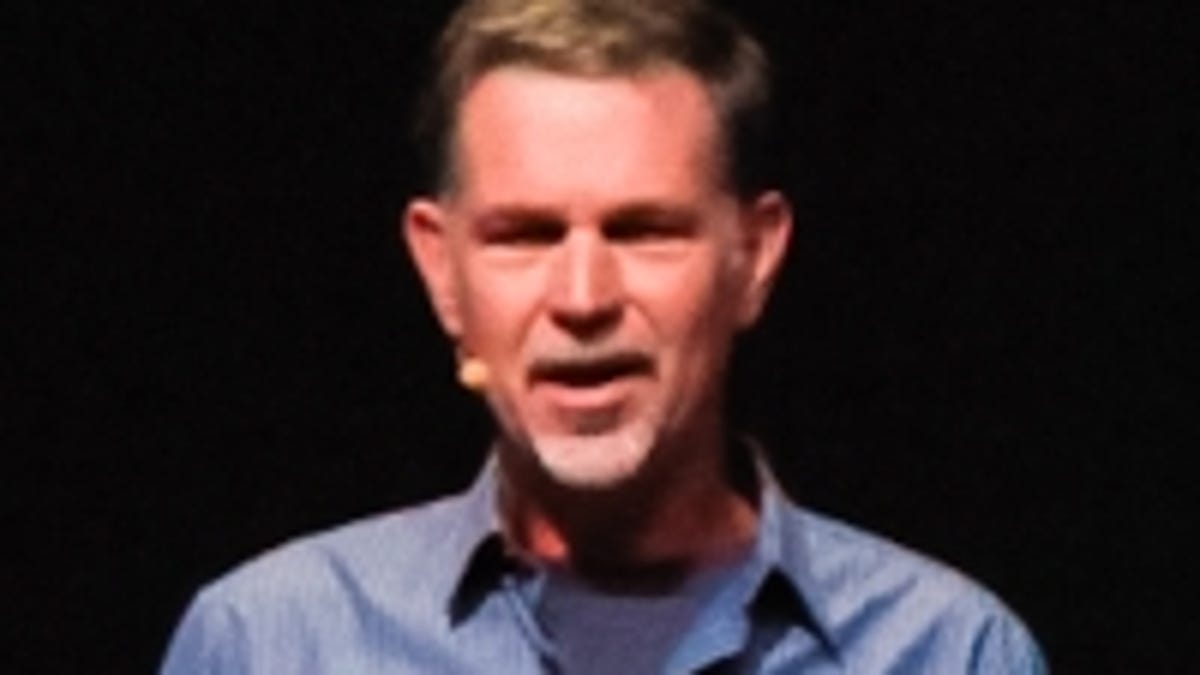With Disney deal, did Netflix take a risky gamble?
Netflix simply doesn't have the money to pay for Disney movies at the same time it pays for all its other films and TV shows, says a prominent Netflix critic. Something has to give.

Netflix CEO Reed Hastings is starting to look more like the guy who helped Netflix seize an early lead in Internet movie streaming and boost the company's share price last year above $300.
The Web's top video-rental service is being applauded after announcing yesterday that it had reached an agreement to become the exclusive subscription TV service to offer Disney's films starting in 2016. Netflix will get access to new releases from the studio during a span of time known in Hollywood as the pay-TV window, i.e., after the films have appeared in theaters and gone on sale as DVDs and downloads. Netflix becomes the first Internet subscription service to offer movies during that early period.
Look at some of what the deal gives Netflix: Managers can use it to show consumers they're improving the streaming library. The $8 monthly fee Netflix charges for streaming becomes an even better value. In one master PR stroke, Hastings casts into the shadows all the bad news Netflix generated over the past 18 months: bungled price increases, an executive exodus, missed subscriber projections. Perhaps most important is that now the industry must take seriously Hastings' repeated claims that his company is an HBO competitor. Netflix has become one of the big boys.
But hold up. Netflix critics see signs that Hastings may have given up to too much for the movies. Who else but Michael Pachter, the analyst from Wedbush Securities and longtime Netflix critic, would refuse to concede that the Disney agreement is good for Netflix? During the past year, as Netflix's share price has plummeted, Pachter has appeared prophetic.
On this Disney partnership, the analyst notes that Netflix already had a golden opportunity to license Disney fare. Through a licensing arrangement with Starz, Netflix streamed movies from Sony Pictures and Disney from 2008 until February of this year. The deal ended when Netflix declined to pony up the $250 million to $300 million that Starz reportedly was asking. According to The Los Angeles Times, Netflix's new deal with Disney could eventually cost it more than $300 million annually for just Disney's titles -- albeit a greater number of them.
Consider that Netflix reported net income for all of 2011 of $226 million.
"They bought half as much content back for the same price," Pachter said. "What I know is that Disney got screwed or Netflix got screwed. You cannot come up with a win-win situation.... Netflix won't be profitable for the next three years because of its overseas expansion, and this deal guarantees that it won't be profitable the three following years."
Pachter then questions the value of Disney's films. No offense to Disney, says Pachter, but it was Hastings himself who downplayed the importance last year of Disney's movies when the Starz deal fell apart. In a letter to investors last October, Hastings said that the movies obtained from Starz accounted for only about 10 percent of viewing hours. "Netflix has about 10 times the streaming content selection of...Starz in terms of what consumers actually choose to watch."
But I've heard the "Netflix just can't afford to pay for top movies in early windows," for two years now from studio sources, and what do you know? Netflix just did that. Pachter said Netflix simply can't afford to spend like it is and a) stay profitable and b) pay for all the other movies and TV shows the company offers.
"Netflix is likely playing a kind of shell game," Pachter said. "They move the pea around under the shells, take money that they're paying to CBS and move it NBC and take money from Fox and move it to Sony. They're pushing money around and hoping that they're customer doesn't notice that in the aggregate the content on Netflix isn't quite as good as it was before."
If the customer doesn't notice or doesn't care at $8 per moth, then Netflix is sitting pretty. Bringing Disney into the fold is a powerful marketing tool, and remember Netflix's strategy has always been about building market share. The bigger its audience, the more money it has to acquire movies and the harder it is for the studios to turn down the company's checks.
Meanwhile, I wonder whether these types of agreements with marquee studios aren't helping Netflix to rejigger consumer perceptions about the value of movies and their expectations for the service.
More and more, when I ask friends if they've seen a hot movie, what I hear is: "I'll wait until it's on Netflix."

